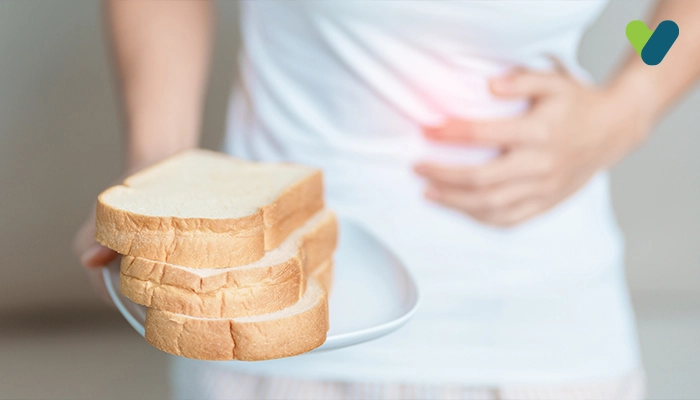Our body needs various nutrients for proper functioning. One such essential nutrient required is iron. Right from the time a woman is expecting, she is prescribed iron supplements, this shows the importance of iron in the human body. Even the fetus needs iron for proper development. When the body is not able to get a proper dose of iron along with folic acid, there is a decrease in the production of red blood cells or RBCs. This deficiency of red blood cell production in our body ultimately leads to a common disease called anemia.
Anemia is a condition that can be improved significantly with the right choice of food items. One should focus on eating foods that help and at the same time have a proper understanding of foods to avoid with anemia.
Let us acquaint you with a complete list of anemia foods to avoid.
What is Anemia?
As told before, anemia is a kind of deficiency disease that takes place when the body is unable to produce a sufficient amount of red blood cells. This happens due to lack of iron because then our body is not able to produce enough hemoglobin and as a result the oxygen supply through the red blood cells to our heart and other body parts becomes difficult. 5 out of 10 pregnant women, 2 out of 10 women, and 3 out of the men around you are suffering from anemia due to iron deficiency.Signs and Symptoms of Anemia
If you are iron deficient you may experience signs of anemia like:- Fatigue
- Dizziness
- Pale and Yellow Skin
- Cold Hands and Feet
- Chest Pain
- Difficulty in Breathing
- Fast or Slow Heartbeats
- Headaches
Top Foods to Avoid if you have Anemia
A diet plan rich in iron is ideal for an anemia patient. However, at the same time, one should also be aware of food items to eliminate from the diet to prevent the situation from getting worse. Here is a list of worst foods to avoid with sickle cell anemia:1. Calcium-Rich Foods: On top of our list of foods to avoid with anemia are calcium-rich foods. It is because calcium doesn’t let your body absorb iron and it may therefore worsen your anemia symptoms. Foods rich in calcium, as we all know, are dairy products like milk, cheese, yogurt, and fruits like bananas, and nuts.
2. Tannins Rich Foods: The second type of prohibited food for anemia patients is a food rich in tannins. People with anemia should try to avoid tannin-rich foods because tannin prevents the proper absorption of iron in the body. Foods that are rich in tannin are corn, grapes, black tea, coffee, and tea.
3. Phytate Rich Foods: The third type of foods to avoid if you have anemia is phytate-rich foods. Phytate binds to iron in your digestive tract and makes it difficult to get absorbed. So, try avoiding phytate-rich foods like brown rice, legumes, nuts, and whole-grain wheat.
4. Oxalic Acid Rich Foods: Similarly, try to skip oxalic acid-rich food items from your meal if you are anemic. It is because oxalic acid is known to hamper the absorption of iron from the body. Foods that are rich in oxalic acid are spinach, peanuts, chocolates, and parsley.
5. Polyphenol Rich Foods: For the same reason of obstruction in the absorption of iron, we recommend you avoid polyphenol-rich foods. Foods like cocoa, coffee, spices, walnuts, and apples are rich in polyphenols, also known as phenolic compounds. These interfere in iron absorption in the body, so they should be avoided by anemia sufferers.
6. Alcohol and Caffeinated Beverages: On the other hand, remember that your anemia symptoms may worsen if you don’t give up on alcohol and caffeinated beverages. Drinking alcohol is otherwise also not good for your health and more so if you are an anemia patient. Too much alcohol consumption may make you iron deficient.
7. Gluten Foods: Likewise, we recommend you avoid gluten-rich foods if you are suffering from anemia. Some people have gluten allergies because their body doesn’t accept gluten and somehow damages their intestinal wall thereby preventing it from absorbing iron as well as folic acid. So, avoid gluten-rich foods like barley, wheat, oats, and rye.
8. Certain Medications: Lastly, certain medications also play a big role in interfering with the body’s mechanism to absorb iron. Drugs like penicillin, Dapsone, Levodopa, Cephalosporins, and Nonsteroidal and anti-inflammatory drugs must also be avoided if you are anemic.
Foods to Eat in Anemia
Now, that you have just read about the main foods to avoid during anemia, we feel it is equally important to understand the best foods to eat in anemia:- Eggs
- Grains
- Nuts and Seeds
- Fruits and Vegetables
- Pulses and Beans
- Fish and Red Meat
- Fortified Food
Risk Factors for Anemia
Besides the above-mentioned anemia foods to avoid, certain things may pose a threat for people suffering from anemia. Let us identify those potential risk factors for anemia patients:- People who are not taking sufficient intake of Vitamin B12, copper, folate, and other important nutrients
- Women with heavy bleeding during menstruation are also at a greater risk of anemia symptoms
- People with a family history of sickle cell anemia are also at a greater risk of anemia
- People suffering from kidney failure, cancer, and other similar chronic diseases may also experience a shortage of RBCs and as a result, suffer from anemia
- The intestine disorder is also a common risk factor for anemia


